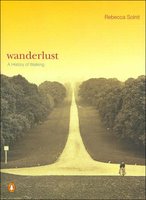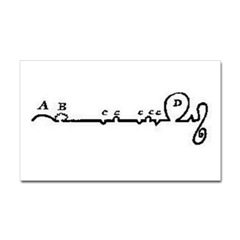I feel uncertain about making resolutions for the new year, not being a resolution-making kind of person and especially having just read Bloglily's very sane post on the topic. But I do want to think about what I'd like to accomplish this year, if only to try something new. So here are some goals, but I won't beat myself up if I don't reach them. Mostly they have to do with reading, although I'll end with some cycling goals.
First of all, back in October I made a list of 13 classics I'd like to read in 2007, and I'd like to complete that list, with one change. Here's the list again, with James Boswell's Life of Johnson substituted for the Burney novel, either Camilla or Cecilia, I'd had on there originally:
1. Marcel Proust, The Guermantes Way, Sodom and Gomorrah, The Captive, The Fugitive, and Time Regained.
2. Anne Bronte, The Tenant of Wildfeld Hall.
3. James Boswell, The Life of Johnson.
4. Miguel de Cervantes, Don Quixote.
5. Virginia Woolf, The Voyage Out.
6. Virginia Woolf, The Years.
7. Thomas Mann, Buddenbrooks.
8. Gertrude Stein's Three Lives.
9. Elizabeth Gaskell, Cranford and/or Wives and Daughters.
10. Balzac's Cousin Bette.
11. William James, The Varieties of Religious Experience.
12. Thomas DeQuincy's Confessions of an Opium Eater.
13. James Hogg, Private Memoirs and Confessions of a Justified Sinner.
I'm determined to finish Don Quixote, Buddenbrooks, the Woolf novels, the William James, and the Proust novels; the others I'd really, really like to read but if I don't, that's okay. Considering my reading pace, 50-60 books a year, this list is pretty ambitious.
After that, I really don't want to get specific about what I want to read, as I like room for spontaneity. But here are a few things I'd like to do:
- Read more poetry than I did last year. As I read 2 1/2 books last year, this will mean 3 books, plus finishing up the 1/2 I have left in my current book -- Jane Kenyon's Otherwise.
- Read more plays than I did last year. As I read no plays at all last year, this will meant reading at least one. We have a copy of Angels in America around the house I might pick up. I just realized, however, that I'll be teaching a play this spring -- as yet unidentified -- and I suppose that will count. It kind of feels like cheating, though, in a weird way. If I'm reading it for work, it shouldn't count for my New Year's resolutions? That's silly.
- Read more short stories. I managed one collection (Alice Munro) and some individual stories for A Curious Singularity, so this means I'll try to read two collections and probably more individual stories for the short story blog.
- Read more books in translation. Last year I read 8. If I read all the books listed above, that will be 7 (Balzac, Mann, Cervantes, and 4 volumes of Proust). Any other books I read in translation I'd like to be non-European. (I'll check out Book Traveller's posts for inspiration.)
- Read one science book. I love reading science but I haven't done it lately. I have Brian Greene and Bill Bryson on my shelves; one of those will do nicely.
Before I begin all this, however, my first order of business is to decide which blog I want to use, the Blogger one or the Wordpress one. I can make the big, life-shaping decisions almost instantly, but the little decisions take me forever.
As for cycling, I'm not sure what goals to set, as I'm really still not sure what I'm capable of. But here's an attempt:
- This past year I rode somewhere between 3,656 and 3,700 miles (depending on how far I ride today). For next year, I'd like to ride at least 4,000 miles but preferably as many as 4,500. The 3,656 number counts only outdoor rides on my road bike; I rode a few more miles on the indoor trainer and on my mountain bike, but those I can't easily count. I'm aware that when it comes to preparing to race, I should probably focus less on the number of miles I ride and more on the level of intensity with which I ride those miles, but one of the things I learned last year is that I don't have enough of an endurance base, so reaching a certain base level of miles ridden seems valuable.
- I'd like to ride in more races than I did last year. Last year I did 16 -- not all of them were official USCF races, but the non-official ones were just as challenging. I did 13 criteriums and 3 road races. I wimped out on a few races in May and June and then I got burnt out toward the end of the summer and stopped racing, so this coming year I'd like to complete more and stick with it longer.
- I'd like to stay with the pack longer in each race and not get dropped as often. This goal should be more specific, but I don't know how to make it so. So I'll just have to say that I'm going to train harder so I'm stronger and therefore won't be quite as easy to leave behind.











